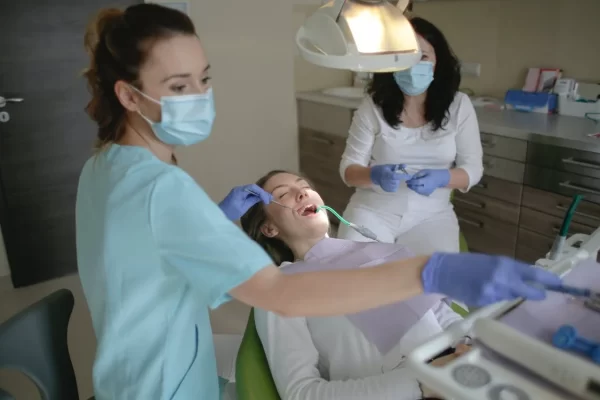Melisa Marzett from custom writing help online helper presents a new conceptual approach of understanding if anxiety is normal or excessive. Anxiety is a natural, adaptive-conditional human emotion, which is physiologically provided by increased activity of the amygdala in response to changes in environmental conditions, perceived by the brain as unknown, and therefore potentially dangerous. Anxiety as an evolutionary mechanism has served man since ancient times, protecting from the dangers emanating from the unpredictable reality that surrounded him. There are some hints that, since more anxious people had more chances to pass on their genetic material to their descendants – they could flexibly and timely respond to factors that threaten their life, this mechanism was evolutionarily entrenched.
Despite the fact that today’s life implies much greater security of our physical existence, our contemporaries are worried much more than their ancestors. Throughout the spectrum of anxieties, the level of so-called “unprofitable” experiences increased, aimed not at overcoming real difficulties, but unrealistic, with an objectively low level of risk, but at the same time difficult to control, consuming a lot of strength and energy. Before you know whether anxiety is normal or excessive, you should know that in most cases, has ceased to serve as a danger signal that mobilizes the body to overcome an impending threat and has become a real problem for modern man, blocking his effective mental functioning, and worsening the quality of life.
Anxiety disorders (along with depression) are one of the most common diagnoses in today’s clinic. According to the European Psychiatric Association, their prevalence reaches 40%. About 30–40% of the population has experienced an acute anxiety attack at least once.
If an alarm ceases to fulfill its signaling function, the alarming states are not caused by the current situation, they are too intense and prolonged, cause inconvenience, if there are difficulties with monitoring, then perhaps the time has come to think about the scale of the difficulties.
How to understand if my anxiety is normal or excessive?
The feeling that the level of one’s own anxiety becomes a problem is subjective enough, however, there are several indicators of the severity and intensity of the anxiety state, which can be relied on when assessing the validity or excessiveness of the level of anxiety.
The clinical psychologist, Dr. Deborah Glasofer, recommends a list of questions that you can ask yourself to understand how great your level of anxiety is:
- Does my anxiety affect my relationships with loved ones or working relationships?
- Does it prevent me from fulfilling my daily duties? Does it harm my work or school?
- Do thoughts about what can go wrong in certain situations often distract me?
- Am I avoiding actions that could please me because of an impending sense of fear?
- Do I feel constantly tense or irritable even in the absence of a clear source of anxiety?
- Do I have difficulty concentrating?
In addition, you can note some more features that characterize anxiety states:
- Do I constantly pursue obsessive thoughts or fears, which can be described as “running in a circle”, a kind of “mental chewing gum”, which is too difficult or sometimes impossible to get rid of?
- Do I have the following problems in my well-being: muscle tension, digestive disorders or digestive problems, headache or dizziness, nervousness, constant fatigue, insomnia, shortness of breath?
- Does my condition last for a long time and how much does it affect my quality of life?
If you find it difficult to answer any of these questions, you can contact your loved ones to help you assess whether something in your behavior really tells them that your anxiety is excessive and has a negative effect on your life.
What if your anxiety is a problem?
If you feel that your anxiety has gone out of control, the opinion of a mental health professional – clinical psychologist, psychotherapist – can help clarify this and determine if your problem is a symptom of anxiety or depressive disorder. If this is the case, the specialist can warn you about the need for medical support, and refer you to a psychiatrist who will select the appropriate treatment.
Typically, the treatment of anxiety disorders includes a combination of psychotherapeutic methods and drug therapy. A timely diagnosis and a properly selected qualified help strategy will allow you to significantly ease your physical condition and improve the quality of functioning.
But even with episodically occurring anxiety conditions that do not fit the criteria for anxiety disorder, due to real events (change in the usual way of life, loss, divorce, relocation, transferred disease, change of work or type of activity, difficulties in relationships, etc.) psychological and psychotherapeutic support will allow you to most comfortably understand the causes of anxiety, as well as develop strategies that make it possible to overcome difficulties based on the resources at your disposal.
What to do in case of mild or intermittent anxiety, which does not significantly impair the quality of life, but brings inconvenience?
Depending on the nature and degree of anxiety, you can choose some self-help strategies:
– the use of relaxation techniques, meditation or techniques aimed at controlling breathing and concentration;
– temporary switching to other activities that can improve the psycho-emotional state, which will make it possible to more adequately assess what is happening, or, on the contrary, address the problem, try to “face it” with your anxiety;
– mental analysis, which includes: studying the real aspects of the problems of concern, assessing the current situation and risks, their resources and opportunities to influence the resolution of difficulties, as well as developing realistic steps for this;
– an increase in daily activity or exercise;
– adjustment of the daily regimen, nutrition, reduction in the level of alcohol and tobacco products.
The above detThese actions can bring some relief in case of mild, situational anxiety. In anxiety conditions of moderate and severe degrees, a visit to a specialist and undergoing therapy may be the way out











